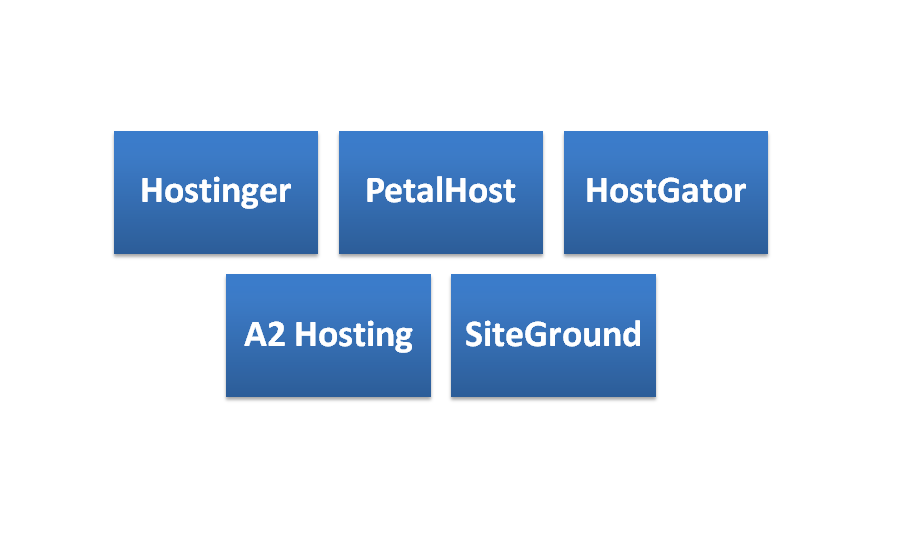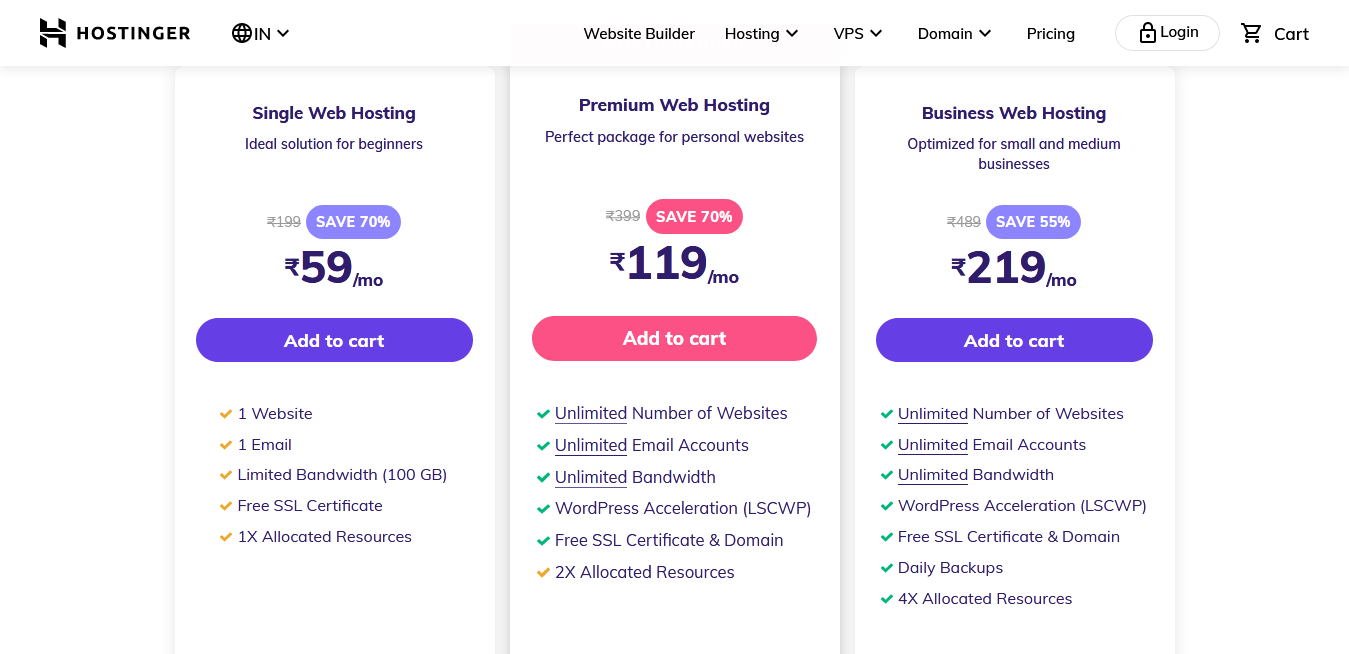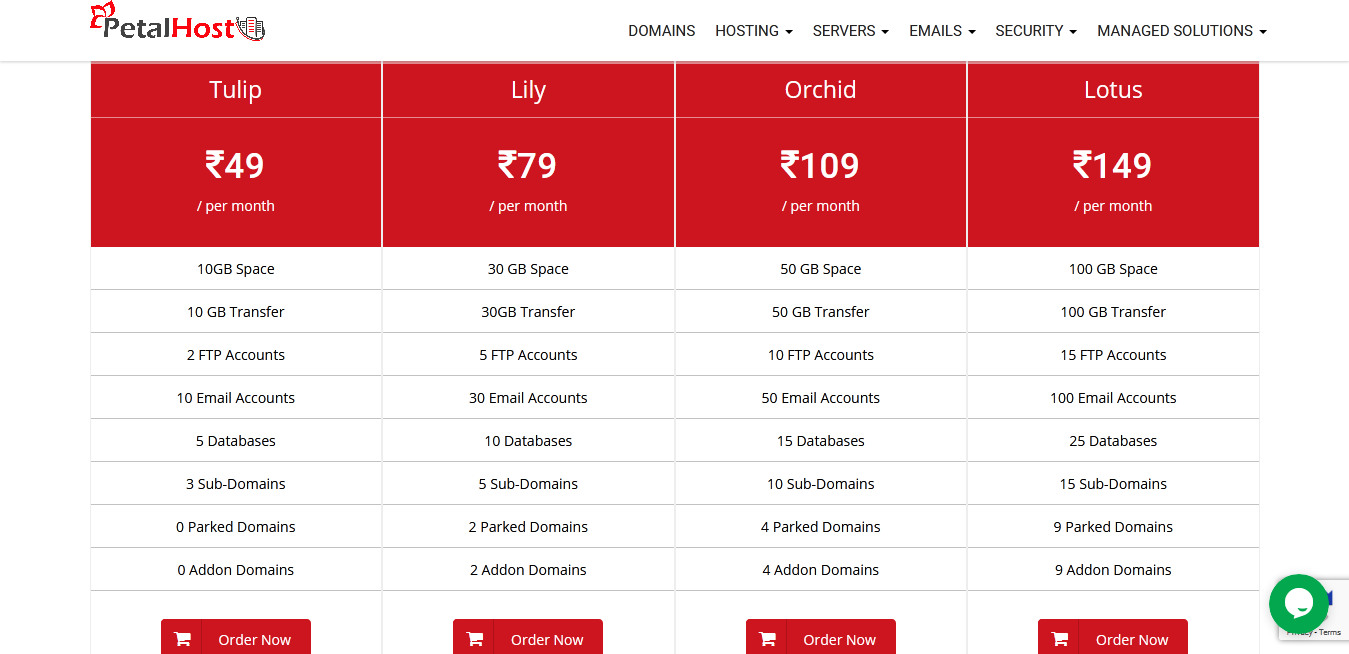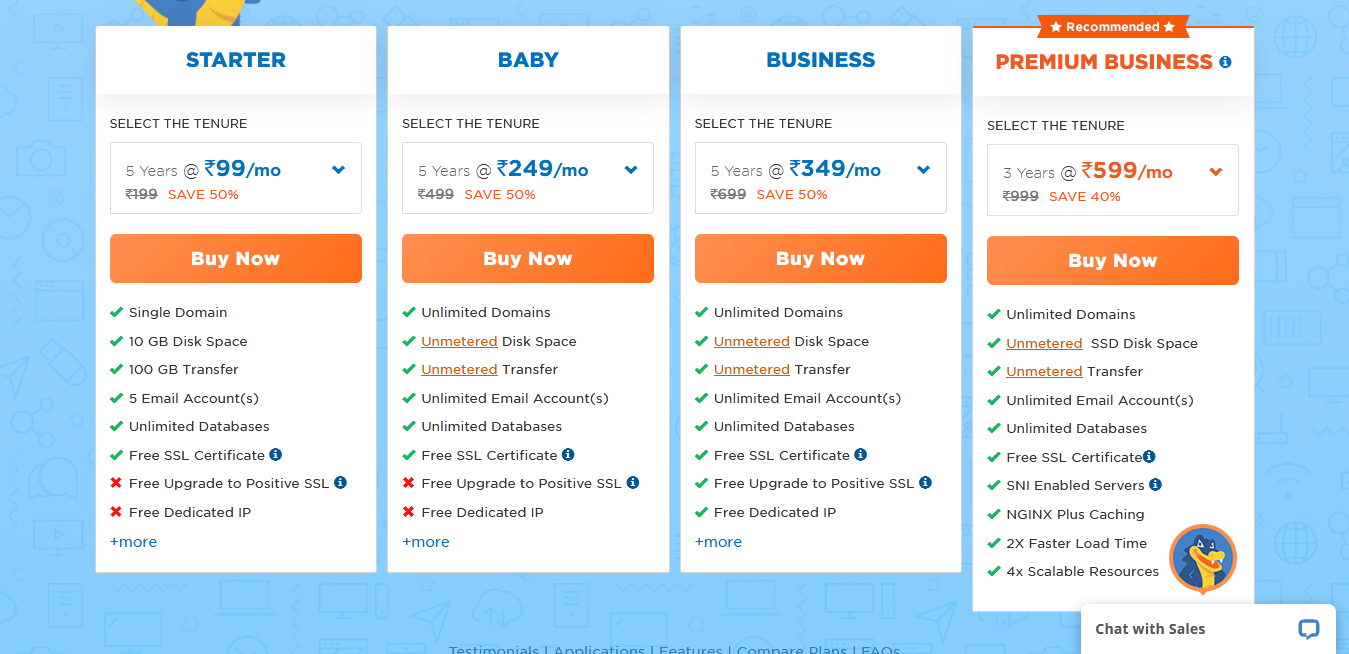What does shared hosting mean?

As the name implies, shared hosting means hosting your website on a single physical server where other websites will also share this physical server. Within the server, there will be software applications installed that make accessing and managing your website easy. When you share the main server with other websites that means you are also sharing your cost with others. Basically, you have to pay less as compared to other hosting plans. Many bloggers, small businesses and startups go for shared hosting to host their websites.
How shared hosting works?
As you know every website is hosted on the server this is how a website can be accessible by the users. When any user types a website URL into their browser, then the browser uses that URL to determine where the requested site is stored. Once the server found the website, the server delivers all necessary data, and web pages display in the browser. After that, the user can view the website and navigate to other pages by following links and so on.
In shared hosting, single server stores all the files of several websites that are hosted on that server. But in shared hosting, websites can use limited resources as compared to dedicated hosting or other hosting plans, this is the reason why shared hosting is one of the cheap hosting methods.
Is shared hosting appropriate for your website?
Now, you are aware of what shared hosting is and how it works, but now you should know whether shared hosting is right for you or not. For this, we have gathered some important factors you should consider before going for shared hosting:
# Determine your budget and website requirements

If you have a small business or startup and you have a tight budget, then choosing a shared hosting plan will be the right option for you. Consider your website requirements such as storage, bandwidth, and other resources you need. If you need limited website resources and you know your website is not going to drive a high volume of traffic then shared hosting will be the best option for you.
# Do you have enough technical skills to manage a server?
If you are a beginner, then it’s quite possible that you’ll have less technical knowledge, or maybe you will be not as experienced as required when it comes to managing a server. But when you go for shared hosting, then you can feel relax because here you don’t need to make changes to the server. The hosting provider will do it for you, and this will be beneficial for you if your technical skills are not advanced or you just want to spend all of your time to maintain the site.
# Do you have a small or large website, and what resources your website needs?
As you know, not only your website is hosted on the server, but there will be other websites also that will be hosted on the same server. Due to this reason, maybe you face some problems regarding the performance or can have a significant impact on your website.
You may be aware of shared hosting will offer you limited storage space, so it is important to consider your website size whether it is small or large. Having a large website and choosing a shared hosting plan would not work for you.
Suppose, somehow you decide to host your large website on a shared server, what will be the result? When you get a high volume of traffic on your site, it’s more likely to overload your shared server, and other websites that shared the same server could temporarily put your site out of commission.
# Restrictions on a shared hosting plan
Your shared hosting provider set a limit on the usage of resources so that no one can exceed its limit, and when any website crosses its resource limit then it would be suggested to upgrade their hosting plan to VPS or dedicated or other strict actions can be performed by the hosting provider, but it will depend on the hosting company what action needs to be taken on the website owners if they exceed the resource limit. There will be restrictions on every shared hosting plan, some restrictions we have written below:
- Memory limits
Many web hosts restrict the overuse of memory that one site can use. When your site grows and exceed its memory limit, then the web hosting company will suggest you upgrade your hosting plan or warning email will be sent to you.
- Restriction of the type of file to host
As you know, you are sharing a server with other websites, so there are higher chances that you can face security issues. Suppose a malware infects one site, then it is possible that it could infect other sites also. So, to prevent this, some web hosting providers place a restriction on the type of file to host.
- Spam and hacker activity
For security and performance reasons, many web hosting providers monitor every activity on a shared server. If they find any evidence of spam and hacker activity on your site, your web host may temporarily or permanently disable it.
Of course, having these types of restrictions could interfere with your ability to download some particular plugins for your website or prevent from doing a specific task such as sending an email directly from your server instead of via a third-party provider.
Who is shared hosting for?
Shared hosting is best suited for bloggers, small websites and small businesses. If your website doesn’t require lots of on-site interaction and has a few pages, then shared hosting is suitable for you. If you don’t expect a large volume of site traffic, then shared hosting is the ideal choice for your website.
It is important to know shared hosting is not scalable and if you are planning to double your site traffic every month for the next six months until you get approximate 200,000 monthly visitors, then it will be suggested to upgrade your plan to VPS, dedicated hosting or cloud hosting because shared hosting will not work for you in this situation because it can’t hold a large volume of site traffic.
But choosing an alternative to shared hosting is only for those websites that want to grow their website with high site traffic, smaller websites can stay with shared hosting, as small websites can deal with slower loading time once in a while to keep their web hosting cost down.
A few important factors need to be considered before choosing a web host and any web hosting plan
Before you choose any web hosting company to buy a hosting plan, make sure you know what your requirements are, so that you don’t get into trouble after purchasing any hosting plan. Every hosting company offers different facilities with each hosting package, ensure that you’ve compared all plans and companies so that you get a clear idea about the hosting plan and web host. For this reason, we’ve mentioned some important factors that you can consider before making any purchase or before choosing any web host for your website:
# Check the price

we can estimate our budget. Out of all hosting packages, the shared hosting plan is the cheapest plan than any other type of hosting plan.
But the question arises “Is shared hosting plan really cheap when you renew it after your initial period?” many web host offers a discount on a shared hosting plan or any other plan when a customer is new but makes lots of money when they renew their plan. But you can’t say it fraud, these are company norms to charge more on renewals. You can switch your hosting company after two or three years to save some money, but there is no way to avoid the higher renewal cost.
# 24/7 Technical support

This is a very important factor to consider before choosing a web hosting company. See if your web host operates 24/7 to support the website available over the Internet. Everyone wants a fast loading website and when our website slows down even for a very small period of time we get frustrated, so to avoid this, check whether the web host you are choosing offers you 24/7 customer support or not.
Customer support helps us when their customers face any web hosting related issue. If a web host offers 24/7 availability of customer support, then you don’t need to worry about, you can take help from them by communicating via online chat, text message or any facility offered by them.
# Backup and web security

When you think about hosting a website, then, of course, you’ll concern about your website security because if your website works with sensitive records of the users such as financial transaction information or medical report, etc. then you must have full security for your website.
Whenever you are choosing any web host ensure that the web host offers you full security. Ensure whether your host allows you to take your website’s backup if you are allowed to take a backup of your site then don’t forget, regular take backup of your website because it will ensure that your data is safe and there are various copies so that you can retrieve your data whenever you want.
# Uptime
Whenever you search for uptime rate you should need for your website, then it will be recommended by everyone to choose the company that offers at least 99% uptime, 99.5% is even better. And also check whether the web hosting company offers you an uptime guarantee or not. If any web host offers you below 99% uptime, then don’t go for that web host because it is not reliable and unacceptable for web hosting.
# Terms and conditions
As you know before you get started with any web hosting company you have to accept all their terms and conditions, make sure you’ve read all the terms, and conditions offered by the web hosting company before you accept the terms and start using the services. If you have any query related to any condition, then ask the company so that after accepting those conditions you won’t later get into trouble.
# Customer review

Whenever customers use any service, they rate specific service good or bad as per their experience with the company and how much they like that service, etc. So you can read the reviews and see the rating of the company given by the customers. It will give you an idea of what you should do next.
# Features/add-ons
After considering all of the above points, now you can see what your web host offers additional features with any web hosting plan. In short, you can see what makes this web hosting company special? What additional features they offer to make the hosting website more attractive? Also, check whether the web host offers multiple data centres or additional features such as regular site backups or free domain privacy, etc. If the web hosting company provides you with add-ons that you require, that can be a good sign that you should choose that company as your web host.
# Refund policy
Nowadays, various hosting companies offer refund policy or trial period in which you can try hosting services offered by them so that you can decide whether you want to continue with the services from free trial to paid or want to terminate the trial period. But remember one thing, if you don’t like their services, then cancel your account before the last day of the trial otherwise, you will be charged for the whole trial period. If you have this question, then it will be good to ask it to the hosting company.
Some companies don’t require your credit card information during the trial period, but after the trial period, you need to upgrade to your chosen plan. Another crucial part of the hosting company is to select the web hosting company that offers you a long trial period so that you can have enough time to decide and try all services they offer for the selected plan.
Benefits of using shared hosting

After developing a website you need a place where you can store your website, and that place is a server, and that server can be provided by a hosting company. These web hosting providers offer customers to access your website by entering the URL of your website into their browser so that they can view your website. As there are various forms of web hosting available, shared hosting is one of them.
As the name suggests, shared hosting allows multiple users to share the resources with each other and utilize one web-server.
Shared hosting is best suitable for those who have small websites, blogging websites or personal websites looking for cost-effective and easy to use web hosting. Shared hosting has various benefits that are written below:
# Cost-effective
As you know in shared hosting, various resources are shared among different users, web hosting server and maintenance cost also can be shared among others, that’s why shared hosting is one of the most cost-effective hosting plans. Shared hosting enables you to establish a high-quality website with a limited budget.
Even you have limited resources but still, you’ll get well-maintained storage. Web hosting plans also include various additional features at low cost such as free domain for one year (for new customers), and user-friendly website building software (limited companies offer).
# Maintenance
Mostly with every shared hosting, highly skilled web hosts maintain the server, hardware, and other software. As multiple users will be using the same server where any technological issue can occur, and it might affect another, to manage this, web hosts maintain and respond promptly to solve technical issues and security concerns.
And the most important thing is, you don’t need to have the vast technical knowledge to maintain the server on your own. You can only focus on your business and website, while your web host will take care of it and focus on the server equipment.
# Room to grow
Shared hosting plan is efficient for lower traffic websites, small businesses, and blogs. However, maybe at a point, your website exceeds its resource limit. Through heavy website traffic, the performance of bandwidth will begin to be degraded, because of this, your site may load slower on a shared hosting server.
If your website is growing, then this is not a bad thing, you can upgrade your hosting service to higher tiers to support a high volume of traffic and fast content delivery.
Drawbacks of shared hosting

Now, it’s time to mention the drawbacks of shared hosting plan:
# Limited resources
The first thing, you have to share the resources with other websites, and the web host also offers you limited resources. So, you have to use those resources very carefully because if you exceed the limit, maybe your host would suggest you to upgrade your plan or you’ll receive a warning mail from your host.
Suppose any website is having a lot of traffic, it will draw most of the resources of the server and your site could also slow down and degrade your site’s performance, it can even lead to system crashes.
# Customer support
Well, shared hosting depends on automated tools and generic questions to serve a large client base. And, if you ask a unique question or problem, then you have to open up a support ticket and wait for the answer. Suppose if you have a bigger problem, then you need to look for expert help from outside, which could cost hundreds of dollars. This lack of customer support is a big disadvantage of shared hosting.
# Security issues
This is another big disadvantage of shared hosting, for this reason, many website owners avoid hosting their website on a shared server. Suppose any website gets hacked, then what about other websites? Obviously, other websites will be under potential threat. And what worse, if the server itself gets hacked, then every website on the server will be hacked with it. So, without any mistake, your website will get into risk in a shared hosting environment.
# No provision of dedicated IP address
The web host doesn’t offer you a dedicated IP address, this thing also can get you into trouble when you want to access your website through IP address then you wouldn’t be able to access it because the server wouldn’t identify which website to bring up. So, in case of emergency, you wouldn’t be able to access your website via IP address if your domain name doesn’t work well.
# No dedicated SSL
Many hosts don’t provide you dedicated or free SSL certificate when you buy a shared hosting plan. In that case, your website will show a “Not Secure” warning. But, if your web host doesn’t offer you an SSL certificate with shared hosting, then you need to end up paying extra money on SSL certificate. The cost itself will become a big disadvantage of shared hosting.
Sharing Resources: Effects on server
To more understand this concept, let’s take an example: Suppose you are staying in a house with some 2 other persons, on rent. Now, you have to share water, electricity and some space like the kitchen as well. But with this, the cost is also divided among three of you, this is the benefit of sharing resources. Similarly, in a shared hosting plan you have to share resources with other websites that are hosted on the same server, resources will be divided among various other websites.
If you are expecting low to medium site traffic, then shared hosting is the best option for you since it is cost-effective and convenient. As you have to manage a lot of things while sharing resources with others, similarly in the shared hosting plan, it is quite possible you might experience that your website is slowing down, if other websites are experiencing an unusually high volume of traffic.
Whenever your website will get a high volume of traffic, or you have overused your resources, then your host will send you a warning message or suggest you upgrade your hosting plan to a higher tier plan.
Shared hosting vs VPS hosting vs Dedicated hosting vs Cloud hosting
While launching a new website and choosing the right hosting plan can be a difficult decision. So, before choosing any hosting plan, it is important to know what kind of hosting you need.
In this post, we are going to explore different types of web hosting so that you can make the difference between those hosting plans and choose the right hosting plan for your website. Each of these hosting plans has its own advantages and disadvantages that are important to know so you can determine which hosting solution is suitable for you and best matches your website needs.
# Shared hosting

As you know, what shared hosting is and how it works, now again, we are going to highlight only its important aspects. We will tell you about shared hosting in brief:
Shared hosting is where web hosts put your website on a server where hundreds, even thousands of websites will be hosted on the same server. This means each website has to share storage and resources on the server with every other website.
Merits
- It is affordable and convenient to use.
- If you are a beginner and have less technical knowledge even then you can easily get started with shared hosting.
Demerits
- Various websites running on the same server can cause you to slow down your website speed.
- Lack of security, even is one website gets hacked your website can also come under threat.
# Dedicated hosting

A dedicated server is same as it sounds – you will have your own dedicated server where only your website will be stored, and you don’t need to share your resource with anyone, and you’ll have full control over your resources, you can configure the hosting environment as well.
Having an own server will be expensive, but in return, you’ll get high performance and high level of security as compared to other hosting types.
When you think about dedicated hosting it is like having a house where you are the only person who will live and can use resources as much as you want. On the other hand, you’ll be responsible for maintaining your server issue, or any error, you have to manage all this. You have to install new updates etc.
Merits
- The server will belong to you only.
- You’ll have full control over the server settings as you can customize the server settings as per your website needs.
- It is relatively fast and you will have full access to server resources.
- It is secure as you are the only one who will use the server and its resources and you don’t need to worry about “bad neighbour” that can affect your website’s performance.
- You will have 24/7 customer support as you are spending a lot of money on dedicated hosting, so the web hosting company will provide you with best customer support as a priority.
Demerits
- It is expensive as compared to other hosting types because you are getting various features and control over server settings etc.
- As you’ll be responsible for everything, so you need technical staff that can maintain and optimize the server.
# VPS hosting

VPS is shorthand for Virtual Private Server, it is similar to shared hosting where you will share a server with other websites, but the only difference is that server will be divided into several virtualized server environments.
Now you’ll think still you have shared your resources with other websites like in shared hosting, but here is a small difference that you’ll share resources but with fewer websites than with shared hosting. Also, you don’t need to share all your resources, and your resources will be partitioned evenly. This thing helps to stop bad neighbours using all the resources because they can only use resources in the limit. If they overuse the resources, then their website will go down, not yours.
Merits
- You’ll pay as per your use and it is affordable than a dedicated server.
- It is more secure because it is partitioned virtualized server and that part only belongs to you.
- It is fast as compared to shared hosting because you are allocated more resources as compared to shared hosting.
- Root server access. You’ll have greater control over your hosting environment.
- It is scalable as VPS can grow when your site grows.
Demerits
- Many hosting companies oversell their resources as they hope that website owners won’t have peak traffic per day.
- It is more expensive than shared hosting.
- If you have chosen unmanaged VPS, then it will be difficult to configure, set up, and maybe it will take a long time to get your website up and running.
# Cloud hosting

Cloud hosting is based on cloud technologies where multiple machines act as one system. So, instead of hosting a website on a single server, it will be hosted on a virtual partition of a server and get resources from the network of existing servers. This enables several servers to work together to manage a high volume of traffic or spikes for any specific website.
But still, you have to share resources with other websites, but there will be multiple servers and resources available for everyone. Cloud hosting is the most reliable hosting because it can draw resources from different servers, in the case if one server goes down, then other servers can fill the gap. One more thing, it is more flexible and scalable, so it can scale up the resources if your site needs more resources.
Merits
- It is reliable as the client always wants a hosting plan which is reliable enough. Cloud hosting is made up of several servers with multiple redundancies that help when one server goes down and another server comes to replace the damaged server.
- Scalable and flexible enough. If you need to scale up the resources then cloud hosting can be easily scaled up to fulfil your website’s requirements.
- It is wallet-friendly as you will pay only for those resources that you have used.
Demerits
- You need technical knowledge because it is not easy to set up and start, even for developers it is a little difficult to set up.
How to host a website in simple steps

Every website needs to be hosted on the web so that anyone can access your website by entering your website URL. Websites need a place where their files can be accessed anytime, anywhere. This is where hosting helps us. Web hosting is a place where you can host your website or store your website.
Before choosing any hosting company for your website, ensure you have followed all the necessary steps so that you don’t get into trouble later. No matter what type of website you are creating, you can host your website with ease if you follow the steps given below:
# Research and choose web hosting company
Before purchasing any hosting plan, ensure that you have research on that web hosting company. All web hosting companies are not the same, some offers add-on features with hosting plan whereas some don’t. As you may be aware of that in the market you’ll find several web hosting companies, but choosing that company which is perfect for you and fits all your needs, will be an important thing for you.
When you search for the best web hosting company, then it will help you to eliminate certain web hosts right away. You may find certain web hosts that offer fast speed whereas, others give priority to customer service. Some hosting companies are best for small websites, while some are best for large websites.
As earlier we stated, there are various hosting companies in the market, so searching for each company would be a difficult and time-consuming task. So you can take help from the third-party guide to save your time.
In this post, we’ll also mention some best hosting providers, and you can choose any web host from them that fits your website needs.
# Determine your budget
Basically, if you have a high budget then you can get more features, but having a low budget, then you have to manage with limited resources and features. Features and resources will come with hosting plan, so ensure all resources and features fulfil your website needs.
If you need limited resources, then you can also go with a cheap hosting plan. Your budget and requirements will decide which hosting plan is best suitable for your website.
If you have a rough idea of your budget, then it can help you to narrow down your options. Suppose if you are starting a small website of a blogging site, then you can start with the cheap hosting plan, otherwise, having a large website needs a higher pricing tier.
# Choose your hosting server
Basically, there are two types of web server where you can host your websites such as Linux and Windows web-server.
- Linux hosting
It allows you to run a script written in PHP, Python, and Perl and usually supports MySQL and PostgreSQL databases. Linux server is the most commonly used system.
- Windows hosting
It allows you to run ASP scripts by using .NET and other Microsoft technologies and supports Microsoft SQL Server and Access database.
# Choose your web hosting plan
After choosing a web hosting company and now you have an idea of how much you want to spend, now you need to choose the type of hosting that will be best suited for your website.
You’ll have four main options, apart from these options some websites offer more options:
- Shared hosting
- VPS hosting
- Dedicated hosting
- Cloud hosting
In this post, we’ve already explained all the above four points, you can take a look at the above points to know which type of hosting would be the best option for you.
While choosing any hosting type, make sure you have checked its features such as higher uptime at least 99.9%, 24/7 customer support, renewal rates, add-ons and resources such as storage, bandwidth, etc.
If your web host includes all of the above features into a hosting plan, then you should choose that plan.
# Register your domain name

A domain name is your website’s address or digital address through your customers can access your website by entering the URL of your website into their browser.
When you sign up for a hosting plan, you can register your domain name from your web hosting company. Sometimes, even your web host offers free domain name with your hosting plan for one year.
It is not necessary to buy a domain name from the same hosting company where your website is hosted. You can register your domain name elsewhere before your settle a plan.
But, it is recommended to separate your domain registration and web hosting. If you want to get a domain name from a web host, then no worries, you can go for it. It will be completely up to you to get a domain from a web host, or you can get a domain from a separate company.
Shared hosting plans providers
If you are looking for the best-shared hosting providers, then you are landing on a perfect page. In this post, we have done by explaining shared hosting and now we are going to discuss top and best-shared hosting providers.
While searching for shared hosting or any type of hosting provider, you may get confused because you’ll find several hosting providers, but choosing appropriate for your website is the main and important thing. One small mistake can ruin everything, so make sure you have chosen the right hosting company. Now, we are going to list the top and best-shared hosting providers:

# Hostinger

Hostinger web hosting company is the best option for those who have just started up. Having any web hosting plan with Hostinger will offer you the best server response time, and they are pretty fast all around the world too. You’ll enjoy 24/7 customer support, and when you go for web hosting you’ll see different types of web hosting such as shared hosting, email hosting, cloud hosting and WordPress hosting India.
In a shared hosting plan, you’ll get three web hosting plans such as Single web hosting, Premium web hosting, and Business web hosting. You can choose any one of them accordingly.
# PetalHost

PetalHost is another leading company in India where you can enjoy different types of web hosting and some additional services such as SSL certificate, domain registration, etc.
In web hosting you can get a basic shared hosting plan, unlimited Linux hosting, Linux reseller hosting and Manage WordPress hosting plans.
In Linux shared hosting plan, you’ll get quick 24/7 customer support, 99.9% uptime, 30-day money-back guarantee, and many more added features. To know more about the web hosting packages, visit the site.
# HostGator

HostGator is another one of the popular web hosting companies, it has been around since 2002. If you choose HostGator as your web host, you can create a professional-looking, beautiful site and user-friendly as well. HostGator is one of them who offer affordable web hosting plans with unlimited disk space and bandwidth.
This web hosting company includes shared, VPS, dedicated servers, reseller, Cloud, and WordPress. It offers fast and reliable servers this is the reason why it is so popular. It offers 24/7/365 customer support to their customers, and many more features are included.
# A2 Hosting

A2 hosting has a good reputation among users, and it also offers web hosting packages at reasonable prices. Their packages include shared hosting, WordPress hosting, VPS hosting, reseller hosting, and dedicated hosting.
Under a shared hosting plan, it offers four packages such as Startup, Drive, Turbo boost, and Turbo max. To know more about these packages in detail, you can visit their website.
# SiteGround

SiteGround web hosting company is in this field since 2004, and their hosting packages include shared web hosting, dedicated servers, cloud and WordPress.
Shared hosting plan includes three packages such as Startup, GrowBig and GoGeek. You can choose any one of them as per your website requirements. It offers 24/7 customer support to their customers, reliable speed and many more features.







